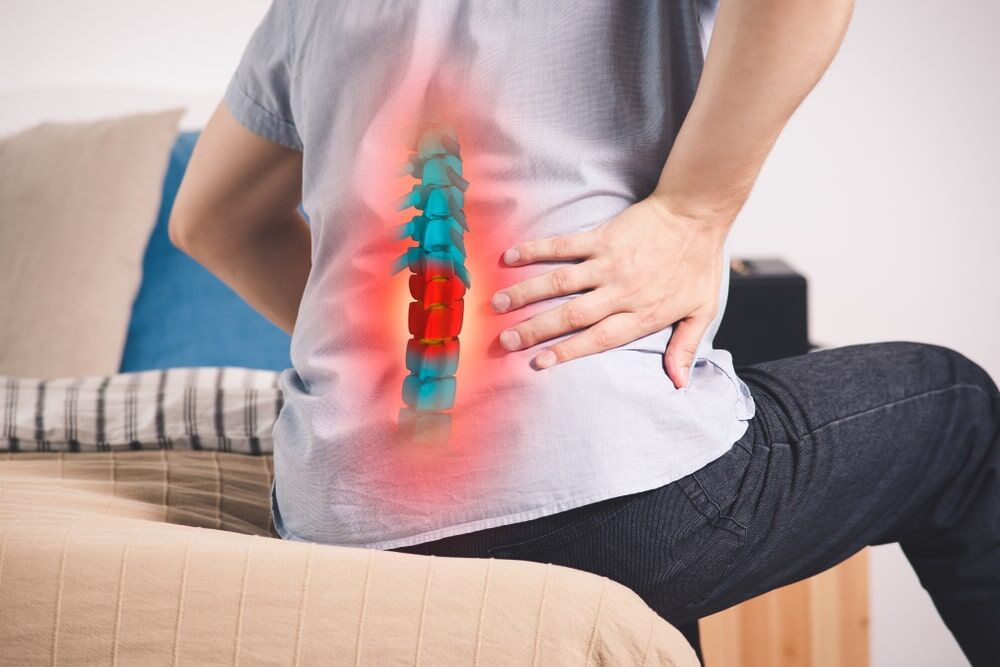Degenerative Spine “Disease”: A Quick Overview

What is Degenerative Spine “Disease”? Degenerative spine “disease” is NOT really a disease, but rather a condition that results from changes that normally occur as the spine ages with time! The word “degeneration” implies a process of decline or deterioration that happens over time. Therefore, as our spine ages:
- The soft discs separating our vertebral bodies will degenerate and lose their water content and height. Thus, their ability to serve as shock absorbers will decline.
- Degenerated discs can herniate resulting in compression of the nerves.
- Bone spurs, thick facet joints and thick ligaments can form and lead to narrowing of the spinal canal and/or around the nerves resulting in spinal stenosis.
Are Degenerative Spine Conditions ALWAYS Symptomatic? No, degenerative spine conditions do not always cause symptoms. As a matter of fact, many people who have evidence of degenerative spine processes on imaging studies do not complain of any significant pain, discomfort or spine-related problems.
Does the Word “Degenerative” Imply that the Condition is Progressive and Will Get Worse with Time? The use of the term “degenerative” is meant to describe the ongoing process of degeneration to the spine that occurs over time with aging and wear-and-tear. It is not meant to describe progression of symptoms if they were present!
What Are the Symptoms that Could Result from Degenerative Spine Conditions?
- Neck or Back Pain: The degenerative changes of the spine could lead to various levels of neck or back pain that differ from one person to another. The severity of the pain can vary with different activities and body positions.
- Arm or Leg Symptoms: Herniated discs and bone spurs could result in a “pinched” nerve phenomenon leading to arm (cervical spine) or leg (lumbar spine) sharp shooting pain, tingling, numbness or even weakness.
- Cervical Myelopathy: Narrowing of the cervical spine from a large herniated disc or large bone spurs can result in cervical spinal cord compression. This could lead to development of weakness of the hands and legs, clumsiness with the hands and loss of dexterity, instability with walking, and bladder dysfunction.
- Neurogenic Claudication: Narrowing of the lumbar spinal canal due to herniated discs, thick facet joints and ligaments can lead to lumbar spinal stenosis and compression of the nerves of the lumbar spine. This could cause pain and/or discomfort of the lower back, buttocks, thighs and legs. Patients with this condition typically prefer to walk with their back bent forward.
When Should I Seek Treatment? It is important to note that since we can’t reverse or stop the process of aging, the treatment of degenerative spine conditions is not meant to reverse or stop the degenerative processes! Treatment is really provided to address the symptoms that can develop as a result of these degenerative processes. Thus, you should seek medical help and treatment options if:
- There is a neurological compromise, such as, weakness of the arms or legs, tingling, numbness or bladder dysfunction.
- There is persistent debilitating pain/discomfort that is interfering with your work and quality of life.
What Treatment Options Are Available? Several conservative non-surgical options exist. These include:
- Medications including non-steroidal anti-inflammatory drugs (NSAIDS), muscle relaxants, or even stronger pain medications when indicated.
- Heat and/or ice therapy.
- Physical therapy, exercises, massage therapy, chiropractic treatment and acupuncture.
- Interventional pain management, such as epidural injections and blocks.
Patients who have failed conservative therapy, have debilitating pain that is limiting their function and affecting their quality of life, or have neurological compromise would be considered for surgical interventions. Different surgical options exist, including minimally invasive ones. Patients considering surgery should have a detailed discussion with their spine surgeon to address the risks and benefits of the different options available.
Mohamed Abdulhamid, MD
www.DrAbdulhamid.com
Follow Me on:
Facebook: https://www.facebook.com/DrMAbdulhamid
Twitter: https://twitter.com/DrMAbdulhamid
About The Author
-

Dr. Abdulhamid is a highly skilled and experienced board-certified neurosurgeon with a passion for providing exceptional spine care. He specializes in minimally invasive spine surgery and has a reputation for achieving outstanding results for his patients. His commitment to excellence and patient-centered approach have earned him the trust and respect of his patients and colleagues alike.
RECENT POSTS
Three Reasons to Turn to Physical Therapy for Back Pain
Did You Know: Your Diet Could Be Contributing to Back Pain?
Exploring the Types of Back Surgery: A Comprehensive Guide
What to Expect During Spinal Decompression Therapy
Tips on How to Maintain Good Spinal Health
How You Can Protect Your Lumbar Vertebrae
Reasons to Discuss Your Back Pain With a Doctor
Understanding Dorsalgia: Causes, Symptoms & Treatment
How to Relieve Lower Back Pain at Home
What is Lumbago? Causes, Symptoms & Treatment
What To Do When You Experience Neck Pain
What Is Ultrasonic Spine Surgery?
How to Do Back Exercises for Back Pain
Ouch! Lower Back Spasms - Causes and Treatments
Why Have I Developed Back Pain After Surgery?
The Purpose of Spinal Decompression Surgery
Three Common Causes of Lower Back Pain
How to Prevent Back Pain at the Office
The Best Ways to Sleep With Back Pain
5 Daily Exercises for Better Spine Health
Is Your Mattress Causing Your Back Pain?
Supporting Back Health While Golfing